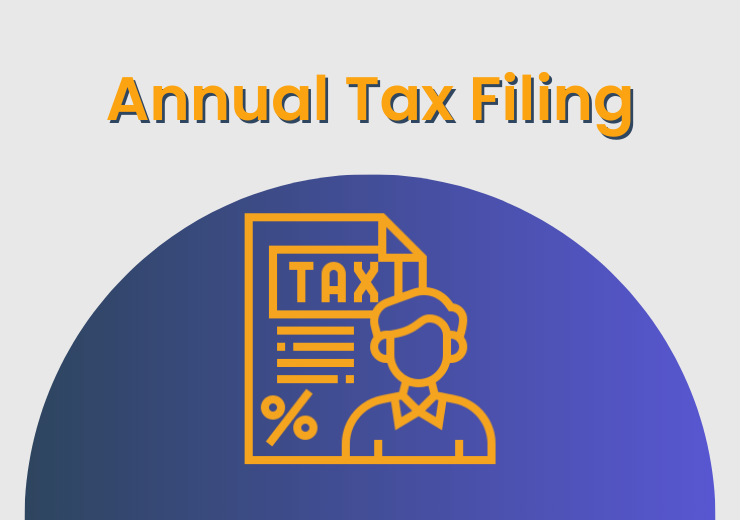Tax season can be a daunting time for self-employed individuals, but with proper preparation and organization, the process can be much smoother. In this guide, we’ll walk you through the essential steps to ensure you’re ready for your annual tax filing. From organizing your financial records to understanding deductions and credits, this article will help you navigate the complexities of self-employment taxes.
Organize Your Financial Records
One of the first and most crucial steps in preparing for your annual tax filing is to organize your financial records. Ensure that you keep your personal and business finances separate. Having a dedicated business bank account and credit card will make it easier to track your business expenses and income accurately.
Accurate record-keeping is key. You should maintain detailed records of all financial transactions related to your self-employment. This includes invoices, receipts, and bank statements. Having organized records will not only simplify your tax filing but also ensure you don’t miss any deductions.
Gather Income Documents
Self-employed individuals often have multiple sources of income. It’s essential to gather all income documents, such as 1099 forms, from your clients or customers. These documents report the income you’ve received throughout the year and are essential for tax reporting.
Understanding the different types of income and their tax implications is crucial. Some income may be subject to self-employment tax, while others may not. Make sure you accurately report all sources of income.
Deductions and Credits
Identifying tax deductions and credits available to self-employed individuals can significantly reduce your tax liability. Some common deductions include expenses related to your business, such as office supplies, home office expenses, and business-related travel.
Additionally, tax credits like the Earned Income Tax Credit (EITC) and Child and Dependent Care Credit can further reduce your tax burden. Make sure you’re aware of all deductions and credits you qualify for.
Self-Employment Tax
Self-employment tax is a unique aspect of being self-employed. It covers Social Security and Medicare taxes that employees and employers typically share. As a self-employed individual, you’re responsible for both the employee and employer portions.
Understanding how to calculate and pay self-employment tax is vital. Failing to pay this tax can lead to penalties and additional tax liability.
Quarterly Estimated Taxes
Self-employed individuals are often required to pay quarterly estimated taxes to avoid a large tax bill at the end of the year. Knowing how to calculate and pay these estimated taxes will help you manage your cash flow and avoid financial surprises.
Business Expenses
Tracking and categorizing your business expenses is crucial for tax purposes. Common deductible business expenses include office rent, utilities, internet, and business-related meals and entertainment. Keeping accurate records of these expenses can significantly reduce your taxable income.
Seek Professional Help
While it’s possible to prepare your taxes as a self-employed individual, seeking professional help is often a wise choice. Tax professionals can help you navigate the complexities of self-employment taxes, ensure you claim all eligible deductions and credits, and reduce the risk of errors or audits.
When choosing a tax advisor, look for someone with experience in self-employment taxes and a good track record. They can provide valuable guidance and peace of mind during tax season.
Recordkeeping and Documentation
Proper recordkeeping is essential for tax preparation. Maintain documentation for all financial transactions, including receipts, invoices, and bank statements. This documentation will serve as evidence of your income and expenses if you ever face an audit.
Tax Software and Tools
There are various tax software and tools designed specifically for self-employed individuals. These can simplify the tax preparation process by guiding you through the necessary steps and calculations. Some popular options include QuickBooks Self-Employed, TurboTax, and H&R Block.
Explore these tools to find the one that best suits your needs and budget.
Avoiding Common Tax Pitfalls
Avoiding common tax pitfalls is crucial to prevent costly mistakes and potential audits. Some common errors include underreporting income, failing to pay estimated taxes, and incorrectly categorizing expenses. Being aware of these pitfalls will help you stay on the right track.
Extensions and Late Filing
In some cases, you may need to file for a tax extension if you can’t meet the deadline. Understanding how extensions work and the consequences of late filing is important. Keep in mind that filing late can result in penalties and interest on any unpaid taxes.
Conclusion
In conclusion, preparing for your annual tax filing as a self-employed individual requires careful organization, attention to detail, and an understanding of the tax laws that affect you. By following the steps outlined in this guide, you can make the tax filing process more manageable and ensure you take advantage of all available deductions and credits.
FAQs
Q1: Can I deduct my home office expenses if I’m self-employed?
Yes, you can deduct home office expenses if you meet the IRS criteria for a home office deduction. It’s essential to keep accurate records of these expenses.
Q2: What’s the difference between a tax deduction and a tax credit?
A tax deduction reduces your taxable income, while a tax credit directly reduces your tax liability. Both can help you save money on your taxes.
Q3: Do I need to pay self-employment tax on all my income?
Self-employment tax applies to net earnings from self-employment, but not all income. Make sure to report all self-employment income accurately.
Q4: What if I can’t pay my taxes in full by the deadline?
If you can’t pay your taxes in full, it’s essential to file your return on time and explore options like setting up a payment plan with the IRS.
Q5: Is tax software better than hiring a tax professional?
The choice between tax software and a tax professional depends on your comfort level with tax preparation and the complexity of your financial situation. Many self-employed individuals benefit from professional assistance, but others find success with tax software.

